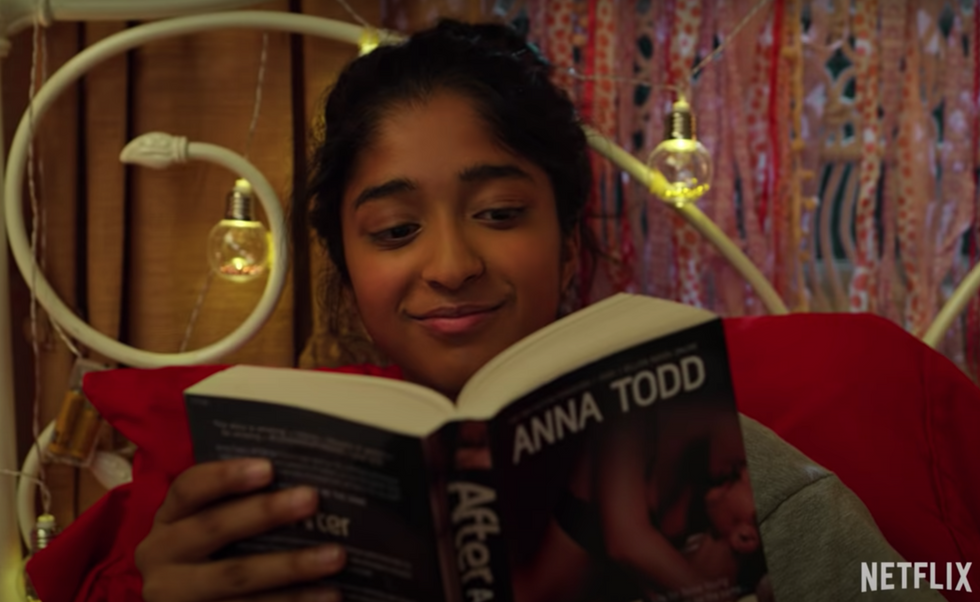Mindy Kaling's new Netflix Series Never Have I Ever, follows Indian-American teenager Devi Vishwakumar in her effort to lose her virginity to the "hottest boy in school," Paxton Yoshida, all the while navigating her feelings after her father's death. She lives with her now widowed Indian mother and her "perfect" Indian cousin, Kamala, who is herself faced with a possible arranged marriage. The rest of this article will contain major spoilers so if you don't want to know what happens, stop here.
This show seemed to be the answer to the ages of misrepresentation of Indians in the media. South Asian Americans experience only the stereotypical nerd tropes of Raj Koothrappali in Big Bang Theory and Baljeet from Phineas and Ferb (though my man Baljeet is an utter legend). Mindy Kaling, half-Tamilian and half-Bengali, however, has broken out of this mold and has played nontraditional Indian roles such as Kelly Kapoor in The Office and Dr. Mindy Lahiri in her own show The Mindy Project. Kaling is arguably the most successful Indian-American actor in American television. So, naturally, when Indian-Americans such as myself first heard of this show that Mindy Kaling was producing, the same thought went through our heads: "Finally, a show for me."
What we got wasn't exactly what we expected.
First, let's discuss what Kaling got right starting with Kamala's heavy Indian accent. Many Indian-American teenagers who watched this show were offended by her accent, however, my parents, people who are 100% Indian, like Kamala, thought it was a good addition. They said that there is no reason to hide an Indian accent or to pretend like people from India do not have accents - if anything, it normalizes the Indian accent so that it isn't awkward or degrading. Kamala is not meant to be an assimilating immigrant or a pure desi - she is somewhere in between, retaining her Indian accent and culture, while still appreciating more western aspects like dating and teenage dramas.
Next, let's talk about some of the racial stereotypes that Devi's mom expresses here and there. It is a well-known fact that Indian parents do not mince words - while they are not racist, they do not come from the same PC culture that we do so they express certain stereotypes that our generation would not. In the show, Devi's mom specifically expresses how an Indian woman's parents disowned her after she married a Muslim man. She also says that Jewish people handle money well and are therefore rich. Of course, perpetuating degrading stereotypes of Muslims and Jews should not be tolerated, but that was not Kaling's intention. It is realistic to portray Indian parents as saying these things because some Indian parents genuinely believe them - just because they are depicted saying them, doesn't mean that Kaling is saying they are right.
That being said, let's discuss where Kaling falters. When Devi's mother says that a Muslim groom is not tolerated, nobody in the show provides a counter to show that a Hindu-Muslim union is actually acceptable. While Kaling does not explicitly express that this stereotype is acceptable, she does not do enough to counter any of the stereotypes. To the non-Indian audience, this makes it seem like every modern Indian family has the same outlook on religion.
Furthermore, Devi's portrayal of a (for lack of a better word) horny, status-obsessed, culture-avoiding Indian-American teenager does not speak to the majority of Indian-American teenagers out there. Most Indian-American teenagers are not as whitewashed as Devi nor are they as sex-obsessed. This is the major complaint against the show - people don't see themselves in Devi.
However, even though I agree that Kaling could have done a better job in moderating Devi's personality, this show is a comedy - a comedy that overemphasizes certain parts of the Indian-American and just American experience for laughs, an aspect of almost every comedy no matter the racial identity. Almost every Indian-American teenager, including myself, has struggled to fit their Indian culture in their American life, like Devi. Kaling just over-emphasizes this to fit the genre of the show. Let's remember, Kaling succeeds in reflecting the racial makeup of America with a majority non-white cast and despite her mistakes, this is an entrance into representation. Other producers will learn from what Kaling gets right and what she gets wrong to better the future of South Asian representation.


















